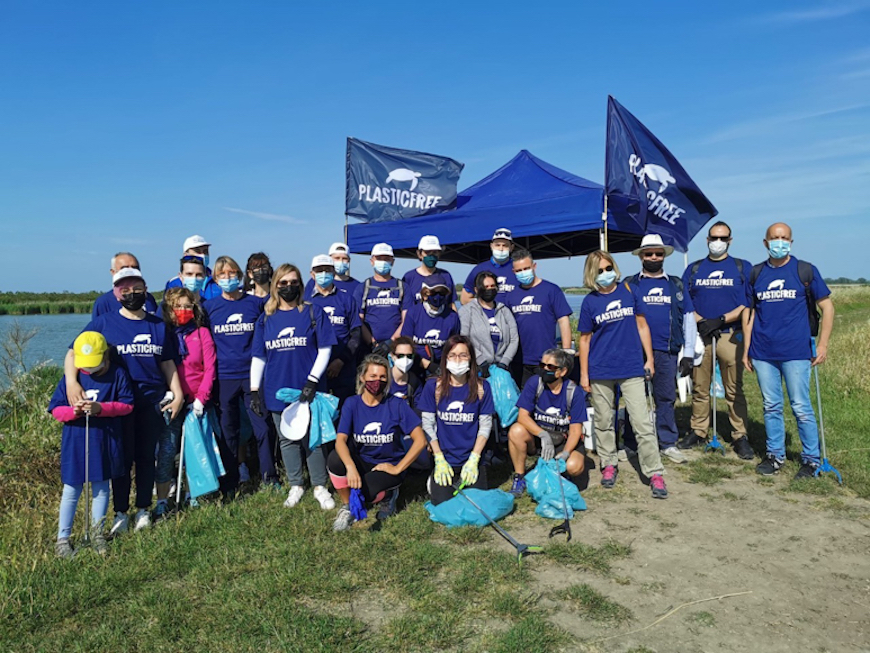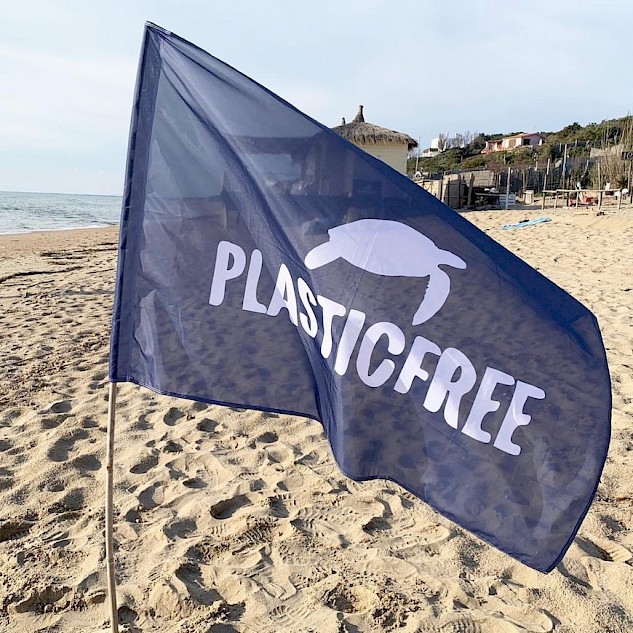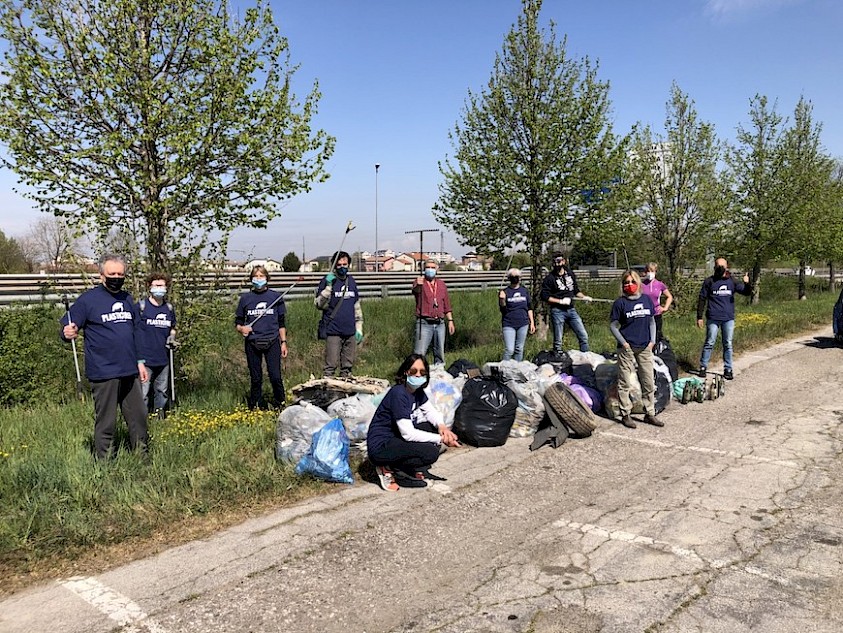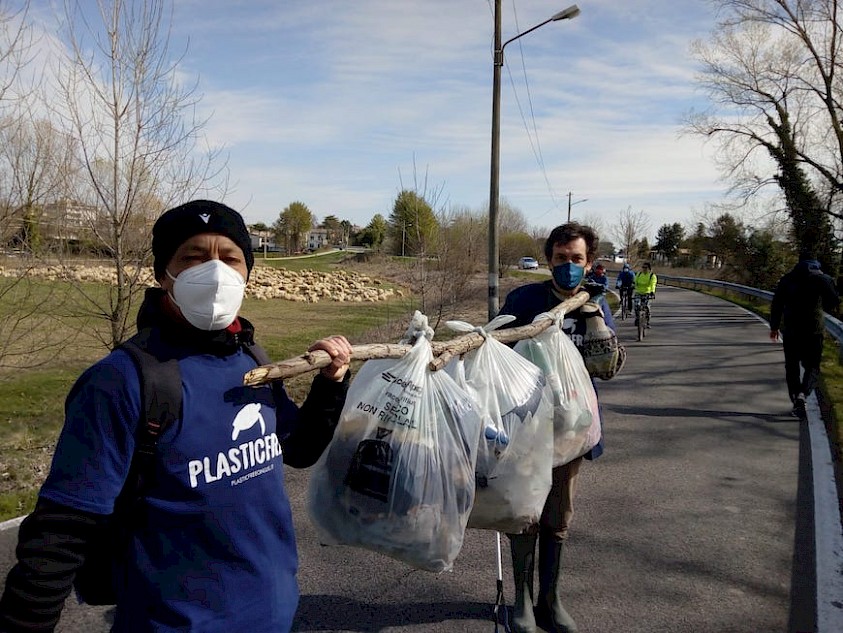
Plastic Free was born two years ago, on July 29, 2019, with the aim of informing and raising awareness about the danger of plastic for the environment. The Onlus takes its first steps from the understanding that a coordinated and effective effort is needed to free the world from plastic waste as much and as fast as possible. According to a recent WWF research, every year are released into the sea about 8 tons of plastic and a study by the World Economic Forum estimates that with this trend in 2050 there will be more plastic objects in the sea than fish. These data are enough to understand the urgency of a decisive action to fight against pollution. We talked about the aims and motivations of Plastic Free with the representative for the province of Padua Anna Luisa Zanettin.

The work done by Plastic Free starts from the most concrete aspects of everyday life. Group walks are organized in order collect waste together. Walks make it easier to understand how a simple action such as collecting a bottle found on the street can make a difference. Waste is collected with gloves and tongs and then placed in special bags and collected to be properly sorted and or recycled. "The satisfaction you get from doing this", Anna Luisa Zanettin tells Morocolor, "is incredible". Concreteness is the essential key: "I am convinced that giving the example is more important than words". Not only because you have the feeling of having done something good for the planet, but because you have done it in a tangible way. Literally with your own hands. Sometimes the discourse on climate change and the need to slow down global warming can be abstract and oppressive, even overwhelming, giving a feeling of powerlessness in the face of such a great problem. Plastic Free’s aim is to raise awareness about the risks of plastic pollution, but also to make people understand that everyone, in their own small way, with simple daily gestures, can have a direct and positive impact. In its two years of activity, the non-profit organization has collected more than 940kg of plastic thanks to the work of more than 900 volunteers throughout the country.
The non-profit organization is engaged on several fronts: from saving turtles to raising awareness in schools: "if you educate children about this issue, they will become better people and citizens one day". Anna Luisa Zanettin explains that children also have a very important social role: "what they learn at school they then take home. It often happens that families who are not sensitized to these issues come into contact with this reality through their children".

Plastic free's collaboration with municipal administrations is based mainly on a memorandum of understanding, through which the municipality takes it upon itself to facilitate the non-profit organization's events in the area, but also and above all to make agreements with waste disposal plants. This is a crucial point: the collection of plastic dispersed in the environment is useless if it is not then properly disposed of. Companies can gove a significant contribution too: "first of all by raising awareness among all workers, and then by eliminating single-use plastics in the workplace as much as possible". Cooperation between all institutions, both public and private, is essential if we are to achieve the climate goals for 2030 and 2050.
In this context, single-use plastic is the most dangerous: since it is not recycled nor recyclable, it is easily dispersed into the environment. The material neither shrinks nor wears out, but over time it "disintegrates into tiny pieces called microplastics", which are eaten by fishes and thus enter the food chain. Every week, according to Plastic Free, we eat about five grams of microplastics, which seriously harm our health. Starting on Saturday, July 3, with the implementation of the 2019 Directive 904, more commonly known as Sup (Single Use Plastic), all single-use plastic items will be officially outlawed: from saucers to supermarket packaging, straws and Styrofoam containers. "Surely," comments Anna Luisa Zanettin, "if the legislation is complied with it will be a great step forward." It remains important that, together with the legislative aspect, the cultural and social one is active: Plastic Free fights for a real change of mindset that can support a green revolution from the bottom up.

We at Morocolor also tries to use as little plastic as possible. First of all. by trying to give a second life to all its plastic products: for instance, our plastic cases are made to last and can become a container for drawings, makeup or toys. Within our working environment we avoid the presence of disposable plastic in every possible way and we pay attention to correctly recycling the few quantities that we cannot avoid using, even those that come to us from outside, for example the plastic to wrap for pallets. We are always on the lookout for alternative materials for the small part of our packaging that is still made of plastic, and for canteens that can provide meals to our staff while limiting the use of plastic as much as possible!